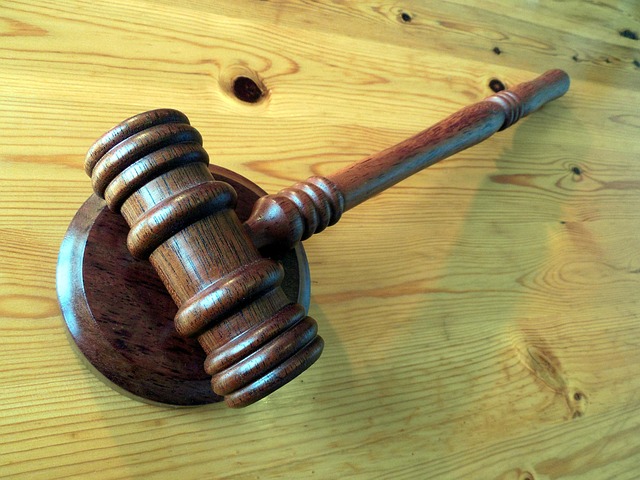C-Level Investigations are comprehensive probes into corporate executives' alleged misconduct, ranging from financial to regulatory breaches, serving as a critical white collar defense mechanism. The four key stages of the Administrative Hearing Process—Initiation, Notice & Investigation, Hearing, and Decision & Review—provide a structured framework for addressing such allegations fairly. High-profile C-Level investigations require strategic planning, data collection, policy analysis, and evidence assessment using an Administrative Hearings Process Guide to mitigate risks and support executives' informed decision-making. Post-hearing, organizations must strategically plan their next steps, revising policies, enhancing compliance, taking corrective actions, and communicating transparently with stakeholders.
“C-Level Investigations: Uncovering Corporate Truths through Administrative Hearings
In today’s business landscape, C-level investigations play a pivotal role in upholding corporate integrity. This comprehensive guide delves into the intricacies of these high-stakes inquiries, focusing on administrative hearings as a critical process. From understanding the scope and importance of C-level investigations to navigating the step-by-step hearing process and key management considerations, this article offers an invaluable resource for professionals seeking to master effective investigation strategies. Discover how to successfully navigate post-hearing outcomes and chart a course for organizational resilience.”
- Understanding C-Level Investigations: Uncovering the Scope and Importance
- The Administrative Hearing Process: A Step-by-Step Guide
- Key Considerations for Effective C-Level Investigation Management
- Post-Hearing: Navigating Outcomes and Next Steps
Understanding C-Level Investigations: Uncovering the Scope and Importance
C-Level Investigations refer to high-level inquiries into allegations against corporate executives and top-tier management. These investigations delve into complex issues, spanning from financial misconduct to breach of regulatory norms and ethical violations. The scope encompasses internal audits, external probes by legal firms or government agencies, and even administrative hearings process guide procedures. It’s a crucial aspect of white collar defense, aiming to protect the interests of both individuals and organizations involved in such cases.
Understanding the significance of these investigations is vital for businesses across the country. They serve as a deterrent against potential crimes, ensuring that executives adhere to legal and ethical standards. Moreover, effective C-Level Investigations facilitate prompt resolution, minimizing reputational damage and financial losses. Whether it’s a general criminal defense strategy or a proactive measure against emerging risks, these probes play a pivotal role in maintaining corporate integrity and upholding the law across diverse industries.
The Administrative Hearing Process: A Step-by-Step Guide
The Administrative Hearing Process, often referred to as an internal investigation or probe, is a crucial step for organizations to address allegations of misconduct, especially in cases involving white collar and economic crimes. This process aims to gather evidence, assess guilt, and determine appropriate disciplinary actions, all while ensuring fairness. Here’s a simplified guide:
1. Initiation: The process begins with the identification of potential misconduct, which could range from ethical violations to regulatory infractions. Organizations often launch these investigations in response to complaints, internal tip-offs, or external audits. An assigned investigator, typically an internal compliance officer or legal team member, takes charge.
2. Notice and Investigation: Once initiated, the investigator informs the accused party (or parties) of the allegations and the right to a fair hearing. This phase involves gathering evidence through document reviews, interviews with witnesses or relevant personnel, and possibly examining financial records, as seen in many general criminal defense scenarios across the country. The focus is on fact-finding, maintaining confidentiality, and ensuring all aspects of the law are adhered to.
3. Hearing: After the investigation, a hearing is scheduled where both parties present their cases. This could be an informal meeting or a formal administrative tribunal. The accused has the right to legal representation, cross-examine witnesses, and offer evidence in their defense. The investigator, now acting as a neutral arbiter, presents the findings and recommends disciplinary action if misconduct is proven.
4. Decision and Review: Following the hearing, the decision is rendered, usually within a reasonable timeframe. If the accused is found guilty, consequences may include warnings, demotions, fines, or even termination. There’s often a right to appeal, providing an additional layer of protection for both the organization and the accused individual. This step-by-step process ensures that white collar and economic crimes are handled with care, maintaining organizational integrity while safeguarding individual rights.
Key Considerations for Effective C-Level Investigation Management
Managing C-Level investigations requires a strategic approach to ensure effectiveness and mitigate risks. Key considerations include a thorough understanding of the respective business landscape and the unique challenges posed by high-stakes cases. An experienced Administrative Hearings Process Guide can be invaluable, providing insights into navigating complex regulatory environments and legal procedures.
For his clients, this involves meticulous planning, robust data collection, and a deep analysis of relevant policies and precedents. By employing a structured methodology, investigators can efficiently gather evidence, assess potential liabilities, and develop strategies tailored to the specific needs of the respective business. This proactive approach enables C-level executives to make informed decisions, minimize reputational damage, and enhance overall risk management in high-stakes cases.
Post-Hearing: Navigating Outcomes and Next Steps
After an Administrative Hearing Process Guide, organizations often find themselves navigating complex outcomes with strategic next steps. The process can be a delicate balance, especially when dealing with potential repercussions in both the philanthropic and political communities. For businesses involved in white-collar defense, understanding the hearing’s outcome is pivotal to shaping their future strategies.
Whether the decision goes in their favor or not, companies must promptly plan for implementation. This may include revising policies, enhancing compliance measures, or taking corrective actions to avoid similar issues in the future. Moreover, effective communication with stakeholders—from employees to investors—is essential throughout this phase, ensuring transparency and building trust.
C-Level investigations, encompassing key executive responsibilities, demand meticulous navigation through complex processes like administrative hearings. By understanding the scope, following a structured guide for the hearing process, and managing key considerations effectively, organizations can ensure fair outcomes and maintain their reputation. The Administrative Hearings Process Guide offers valuable insights to navigate these challenging scenarios successfully.






